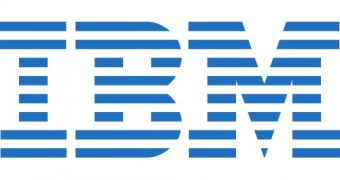IBM may have sparked interest lately by making cognitive processors, but it has again looked to the storage segment ,where it hopes to set a massive new record in terms of sheer capacity.
IBM definitely stirred the sleeping curiosity of many feelings by announcing that it had made cognitive computers, systems that can learn through experience, an actual part of reality.
It turns out that the company is not done being shocking, however, as the newest project it embarked in will have this effect simply because of its sheer scope.
Basically, IBM is showing that it has ambition in abundance by starting work on a giant data drive of 120 petabytes.
This capacity is about ten times higher than that of any other data container ever made and will be attained by combining 200,000 hard disk drives.
The company will employ new hardware and software techniques in order to make the project possible, though the main challenge will be to have the merger possess a decent level of efficiency, both performance- and energy-wise.
The other matter they will need to address is the inevitable failure of these drives and how the data on them might be preserved.
Making sure the whole is not disrupted by the collapse of a small part is also necessary.
"This 120 petabyte system is on the lunatic fringe now, but in a few years it may be that all cloud computing systems are like it," said Bruce Hillsberg, director of storage research at IBM and leader of the project. "A 120-petabyte storage array would easily be the largest I've encountered."
What remains is to see how much time it takes for this project to come to fruition and, once it does, if it really does give a strong enough kick to the data center industry that such massive arrays become standard.

 14 DAY TRIAL //
14 DAY TRIAL //